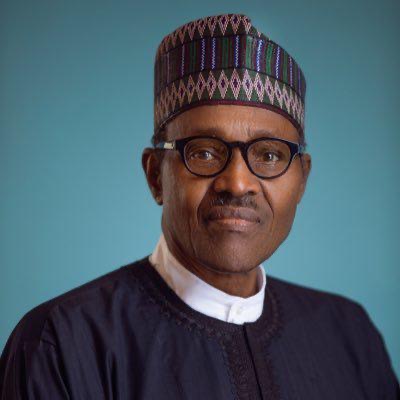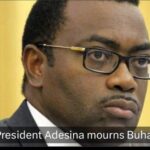Former President Buhari Laid to Rest in Daura on Tuesday at 5:50 PM

Former Nigerian President and Commander-in-Chief of the Armed Forces, Muhammadu Buhari, who died on Saturday, July 13, was buried on Tuesday, July 15, in his hometown of Daura, Katsina State, amid tears, solemn prayers, and national reflection.
The burial, which took place at exactly 5:50 p.m., followed Islamic rites and full military honours. It was attended by President Bola Ahmed Tinubu, Vice President Kashim Shettima, state governors, service chiefs, foreign dignitaries, traditional rulers, and thousands of sympathizers.
In a moment of national symbolism and military tradition, Vice President Shettima removed the Nigerian flag that had been draped over Buhari’s casket before it was lowered into the ground. This act signified the final salute to a leader who had served the country both as a military head of state (1983–1985) and as a democratically elected president (2015–2023).
The body of the late president was flown from London, where he died after a prolonged illness. Vice President Shettima led the delegation that brought the remains to Nigeria. They arrived at the Katsina Airport at about 1:50 p.m. aboard a Nigerian Air Force aircraft. From there, the motorcade proceeded to Daura under heavy security presence.
President Tinubu received the remains alongside Katsina State Governor Dikko Umaru Radda and other senior officials. Tinubu, visibly emotional, joined the late president’s family for the final rites.
A Janazah (Islamic funeral) prayer was held shortly before the burial, led by prominent Islamic clerics. Buhari was interred at his private residence, adjacent to the Daura Emir’s Palace. The Nigerian Army, in conjunction with the Department of State Services (DSS) and police, mounted a 21-gun salute in his honour.
Tributes have continued to pour in from across the globe. World leaders, including Indian Prime Minister Narendra Modi, Ghanaian President Nana Akufo-Addo, and former UK Prime Minister David Cameron, paid respects to Buhari, highlighting his efforts in regional security, anti-corruption, and pan-African diplomacy.
Buhari, aged 82 at the time of his passing, was known for his austere personal lifestyle, his anti-corruption stance, and controversial economic policies. While admired for infrastructural development and strong defence policies, his administration also drew criticism over economic hardship, inflation, and human rights concerns.
Nonetheless, his influence on Nigeria’s modern democratic history is undeniable. From leading the nation as a military ruler in the 1980s to returning through the ballot in 2015 and again in 2019, Buhari became a symbol of political resilience.
In Daura, residents gathered in prayer and reflection, many of them holding portraits of the late leader. Markets were closed, and local broadcasts were dedicated to the coverage of the burial, while mosques offered special prayers for his soul.
As Nigeria mourns one of its most influential post-independence figures, history will remember Muhammadu Buhari as a soldier, a statesman, and a leader whose actions both praised and critiqued shaped the trajectory of the nation he loved.








